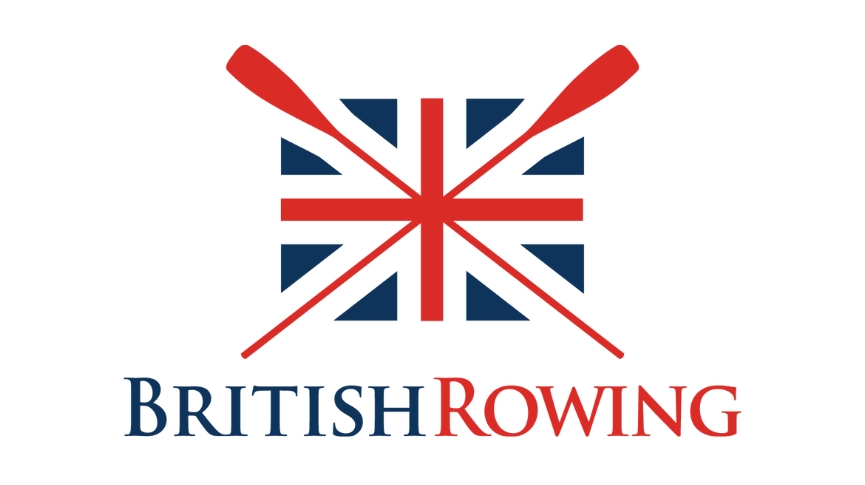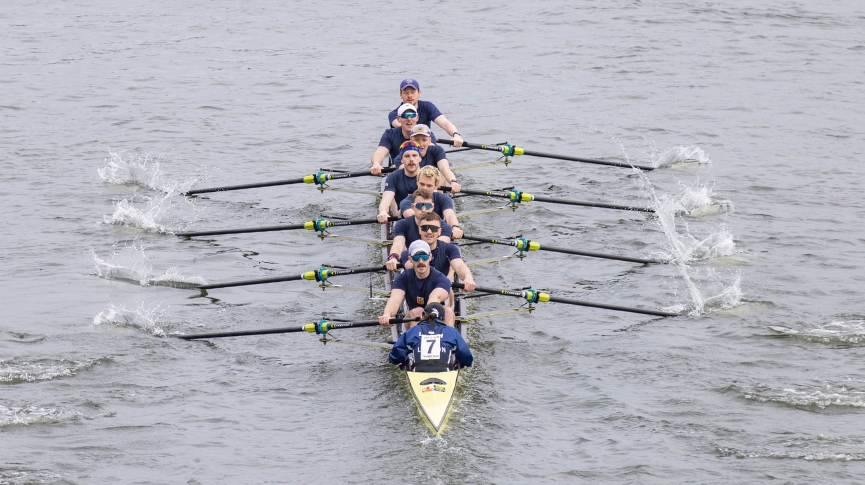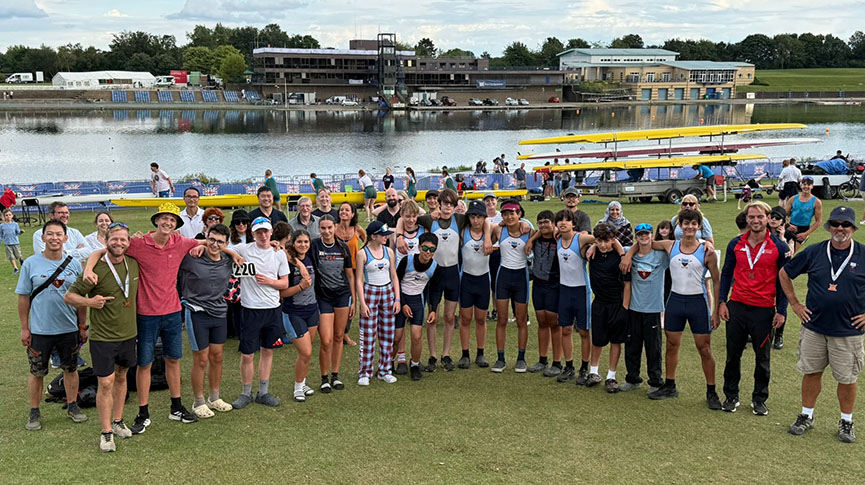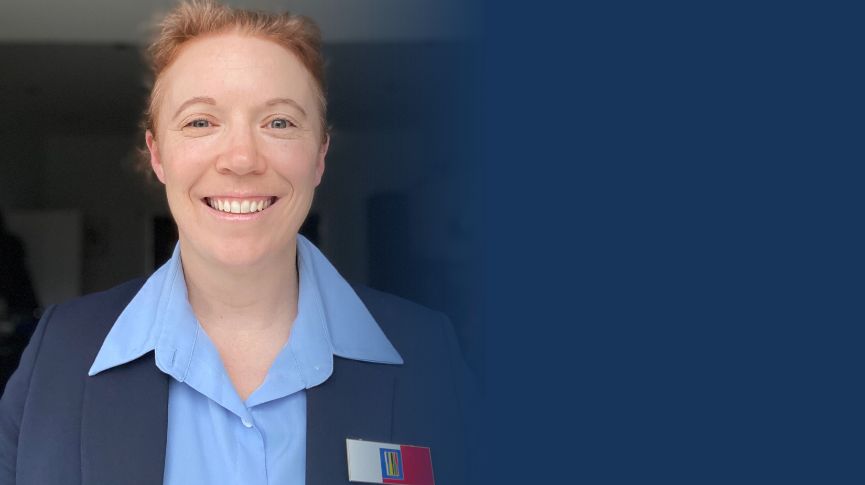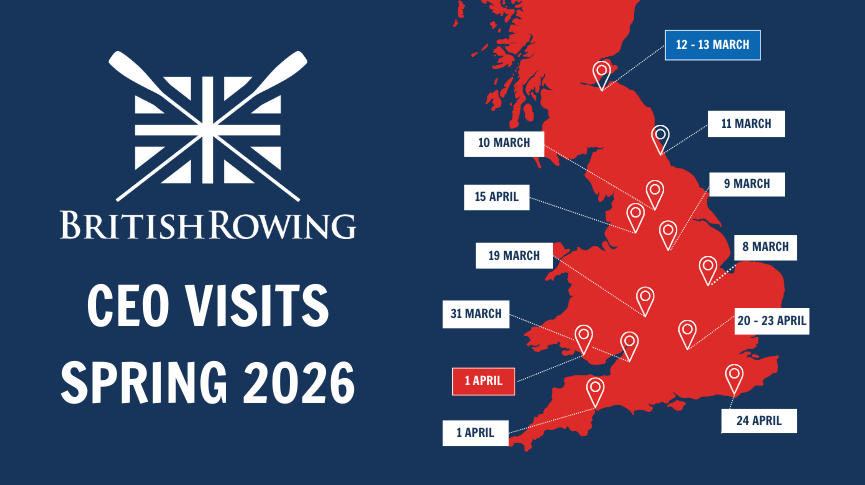Lessons from the boat with Annamarie Phelps CBE
Kicking off a new monthly series of features, Fergus Mainland sat down with Annamarie Phelps CBE to learn which lessons from sport and beyond have shaped her career after rowing
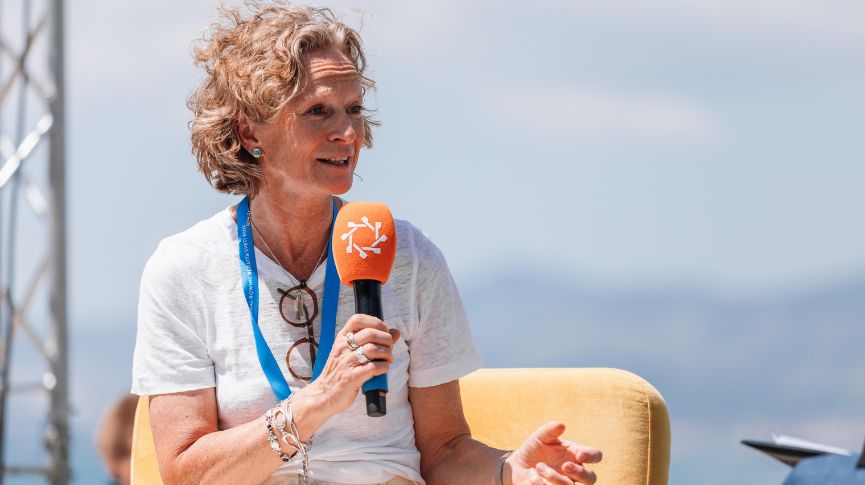
Since being crowned World Champion in 1993 and becoming an Olympian in 1996, Annamarie Phelps CBE has forged a career that has seen her play a pivotal role across the sporting landscape. Alongside studying Geography at St John’s College, Cambridge, Annamarie was part of the crew that raced Blondie to victory over Osiris in the 1987 Oxford Cambridge Reserve Boat Race. After graduating, she balanced training for the Olympics and World Championships alongside work as an art dealer, consultant, author, editor, and curator.
Vice Chair of the BOA, Vice Chair of the British Paralympic Association, President of European Rowing Board, and Co-Chair, Global Executive, International Working Group on Women and Sport are just some of the titles she holds and has held in recent years. Added to the list of her sporting triumphs and you’re left with a decorated CV.
Drawing from a wealth of experience, the former indoor rowing world record holder has identified five lessons that have guided her journey, each offering insights for athletes and professionals alike.
Enjoy the journey (especially in Sarnen)
“The most significant moments in achieving something are not always the ‘biggest’ moments.
“Bill (Mason) our coach would always insist that the race wasn’t the time to try something untested, the every-day grind of training was actually the most important time, the time to push beyond what we believed we were capable of, perfect the 750m push, the last 250 wind. So that when we boated we were confident we could go out and really row our best, there were no unknowns.
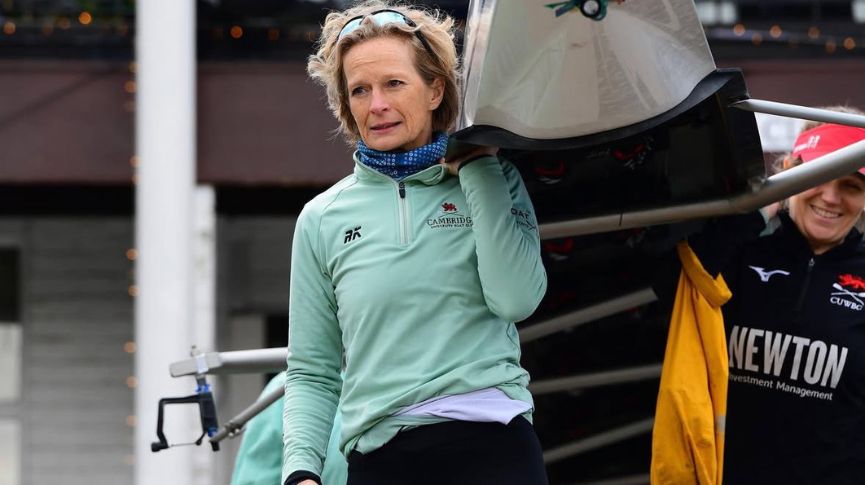
“Sarnen in 1993, was the most wonderful training camp, everything was perfect, and there was a moment, a session that still stands out for me. I will never forget about how we rowed there. Back then there was just a smallish hut by the lake. It had a little kitchen and a lounge you could sit in. It wasn’t a big training centre. But it was just the most beautiful place. It has water that felt gloopy, you know, thick and treacly and it felt like you were rowing through oil.
“For me it was truly magical that year when we stood on the podium in Roundnice (now Racice, Czechia). In those days there were no flags or national anthems played and the announcement of being World Champion was incredible but also a sense of relief, as it had been a tough year. The standout memory of that year for me was when we really clicked as a crew and felt our Coxless Four fly for the first time: the boat really lifted out of the water and just went! That was the most standout moment, the feeling that stayed with me. It gave meaning to the old mantra about enjoying the process, and the importance of enjoying the journey, focussing on the now.”
Listen to understand, not to answer
“One of the other ones I’ve learned through rowing, probably most starkly in being elected President of European Rowing, is the need to really understand the context for others, and every time you communicate, to understand who you are speaking to. Even at a boat club dinner, be sure you know who your audience are before you think about what you’re going to say to them; if it’s not relevant, they will shuffle around, chatting, and if you’re really unlucky throwing strawberries or sprouts at each other, depending on the time of year.
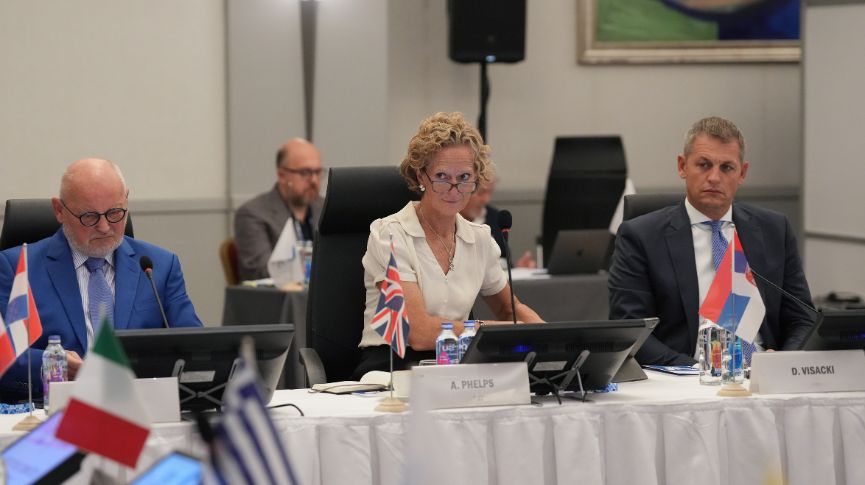
“Federations, like clubs, may have similar challenges, but the circumstances can be very different back in their countries, and the solutions can look quite different. Across Europe we have some Federations with a tiny number of active rowers and others with enormous memberships, but both have developed systems to help them excel. The scale and politics in say, Germany or Britain are very different to Poland, or to Malta or Gibraltar. I have learnt to take time to listen and ask questions to help me understand not just the issue but also the barriers and possible solutions.
“Listening is key. Listen to understand and not to answer. In fact, people appreciate it much more sometimes if you don’t give them the answer because they’re not always asking for an answer; they often know better than anyone what needs to happen.”
Be ambitious, but authentic
“I used to work as an art dealer. I worked quite high-end day-to-day buying and selling paintings and objects around the £20,000 to £200,000 range. My Managing Director, Andrew, at the time would regularly remind us to focus on the six-figure pictures because it’s just as hard and time consuming to sell a £200,000 picture as it is to sell a £20,000 one, and people will generally aspire to something a little out of their reach so they need to believe in you and trust that you also believe it’s a great thing. He would remind us it takes as long to process the sale, regardless of what the number is on the bottom. So I learnt to be ambitious, not just about selling but also about buying, buy the best and forget the rest.
“Art dealing is all about building relationships and trust so you need to be able to help a client get a genuinely great deal, great experience and anticipate where they would want to look next.
“It was a real lesson in prioritising what you spend time on: focus on what you believe in, invest in something of value and you know will be of use to others, and help others enjoy the experience.”
You always have more in common than you do apart
“During my time as Chair of the British Horseracing Authority, I learnt the value of convening, bringing people together and especially identifying the common values and aspirations. More than other sports in the equestrian world there are a number of competing groups and sub-groups – racecourses, trainers, owners, grooms and stablehands, and so on, but it was the love of the horse that always united people. Whether managing change on the governance side, de-risking the sport in up the horse welfare board, bringing in a code of conduct for bloodstock agents or managing the safe return of racing during the Covid Pandemic, returning to the common goals, interests or values meant we could always start a conversation.
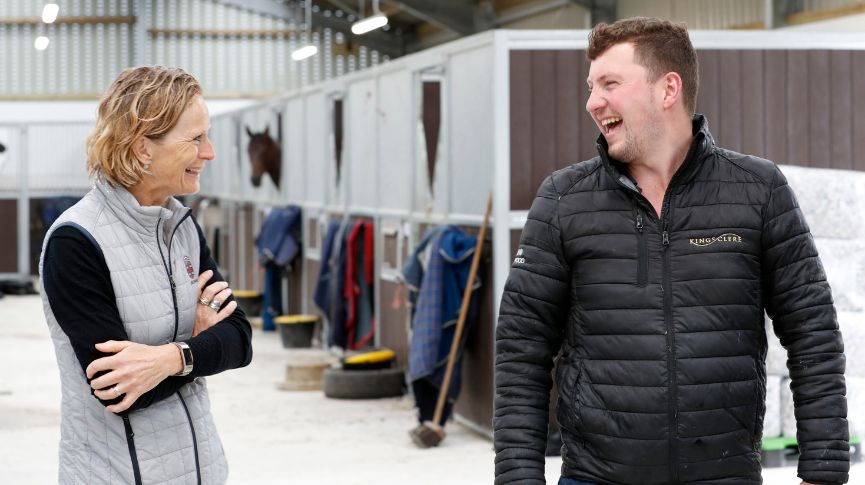
In the case of covid we wanted to be in control of what and when the industry’s response would be to managing Covid, and for me, talking to MPs it was clear the sooner we shut down and established a new way of delivering the sport, the easier this would be. Of course everything had to be done via zoom but people did coalesce. Whilst there was a wide range of views about the ‘how’, the clear goal was to get the industry up and running as soon as possible to protect lives and livelihoods.
I was convinced that if we were the first to shut down, we’d be the first in line to the government to say, here are the conditions under which we can reopen safely, and here’s what we need to do in the interim. And we managed it.
“The lesson I really learnt from it was that no matter how divided a community is, you always have more in common than you do apart.
“In trying to resolve any arguments or pick your way through anything that’s looking really tricky, actually, try to find the things that you have in common. Try to work out mutual ambitions, similar values and principles as these are the things that you can return to, the things we all agree on and want to stick to, so let’s find a solution using those, and that usually works.
Don’t leave home with space in your kit bag
“If anybody asked Richard [Phelps], what would be the one lesson I had taken with me from rowing, I think he would say it was that I always believed that if there’s space in your kit bag, fill it.
“My packing plan for camps, training and competitions was always to take what I absolutely needed. Then, if there was still space in my kit bag, I’d make sure I filled it ‘just in case’, never a wasted space.
I hate to miss an opportunity (or to be caught without a spare waterproof!). I travel a lot nowadays and, whilst I do still try to pack for every eventuality, I have to be much more efficient and try to travel with cabin baggage only. So instead my diary is my kit bag and life tends to be treated the same. If I am asked to an event, to speak, participate or just to experience it I will always try and say yes. You never know what you might learn, who you might meet, perhaps I just have a serious case of FOMO!!.
I can be a bit frantic though, if there’s space in a day or a week, there’s always something that fills it. People ask, ‘What do you do in your downtime?’ I’ll say ‘Downtime? What’s that?’
I never want to miss an opportunity because you never know what’s going to happen when you do something you weren’t expecting it to do.”
Annamarie Phelps CBE is currently running for Vice President of World Rowing with a vision for a stronger, more inclusive and sustainable future for Rowing.


